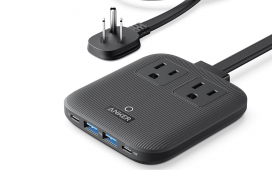Google’s technological roadmap for 2025 reveals ambitious plans across multiple platforms. From significant upgrades to Android TV and Android Auto to the evolution of its AI assistant Gemini, the tech giant is poised to transform how we interact with technology in our homes, vehicles, and daily lives. What innovations can users expect from Mountain View’s labs in the coming year?
As 2025 approaches, Google has begun unveiling its strategic vision for the year ahead. The company focuses on three major technological axes: enhancing its television ecosystem with Android TV, revolutionizing in-vehicle experiences through Android Auto, and advancing its artificial intelligence capabilities with Gemini. These developments signal Google’s commitment to maintaining its technological edge while creating more seamless integration across its product ecosystem.
The evolution of Android TV into an entertainment powerhouse
Google’s television operating system is undergoing a significant transformation to meet evolving consumer expectations. The platform will receive a comprehensive overhaul focused on user experience and content discovery capabilities.
The refreshed Android TV interface will introduce personalized content recommendations powered by advanced machine learning algorithms that analyze viewing habits. This AI-driven approach aims to reduce the time spent searching for content, a common frustration among streaming service users.
Additionally, Google is expanding Android TV’s smart home integration capabilities. Users will be able to:
- Control connected devices directly from the TV interface
- View security camera feeds picture-in-picture while watching content
- Create automated routines triggered by TV usage patterns
- Access personalized health and fitness recommendations
Hardware partners are already developing next-generation devices to showcase these capabilities. Manufacturers like Sony, TCL, and Hisense have confirmed they’ll release updated models incorporating the new Android TV features by mid-2025, ensuring broad adoption across price points.
Android Auto’s transformation into a comprehensive vehicle platform
Vehicle connectivity represents another central focus area for Google. The next generation of Android Auto will extend beyond infotainment to integrate more deeply with vehicle systems and driver assistance features.
Google’s upgraded automotive platform will introduce enhanced navigation with augmented reality overlays, providing drivers with more intuitive guidance in complex traffic situations. Through crowd-sourced data collection and machine learning predictions, real-time traffic information will become more accurate.
Vehicle diagnostics will also receive significant attention, with Android Auto offering:
| Feature | Functionality | User Benefit |
| Predictive Maintenance | AI-powered component failure prediction | Reduced repair costs and vehicle downtime |
| Efficiency Coach | Real-time driving behavior analysis | Improved fuel economy and reduced emissions |
| Remote Vehicle Management | Smartphone-based vehicle control | Convenience and enhanced security |
Automakers, including Volvo, Ford, and the Renault-Nissan-Mitsubishi Alliance, have already committed to implementing these advanced Android Auto features in their 2025 model year vehicles, signaling strong industry adoption.
Gemini’s expanded role as Google’s AI centerpiece
Perhaps Google’s most ambitious initiative involves Gemini, its advanced multimodal AI system positioned to compete with OpenAI’s GPT models. Gemini represents Google’s comprehensive approach to artificial intelligence, combining language understanding, visual processing, and contextual awareness.
For 2025, Google focuses on making Gemini more accessible across its product ecosystem. The AI will power more personalized experiences in Google Search, YouTube recommendations, and Google Workspace applications. Early demonstrations suggest Gemini will offer significantly improved context retention during conversations compared to current AI assistants.
The enterprise applications of Gemini represent a significant revenue opportunity for Google. The company plans to offer industry-specific versions of the AI tailored to:
- Healthcare organizations for medical documentation and research assistance
- Educational institutions for personalized learning and administrative support
- Financial services companies for risk analysis and customer service
- Manufacturing businesses for supply chain optimization and quality control
Privacy enhancements will accompany these expansions, with Google implementing more on-device processing capabilities to minimize data transmission. This approach addresses growing consumer concerns about AI systems and data security.
The integrated future of Google’s ecosystem
The connecting thread through Google’s 2025 initiatives is deeper integration between platforms. Android TV, Android Auto, and Gemini will create seamless experiences as users move between home, vehicle, and work environments.
This strategic approach reflects Google’s understanding that consumers increasingly expect technology to anticipate their needs across contexts. By strengthening connections between its various platforms, Google aims to create an ecosystem that provides value greater than the sum of its individual components.
As these technologies roll out throughout 2025, users will experience a gradual but significant evolution in how Google’s products serve their daily needs, potentially reshaping expectations for the entire technology industry.









